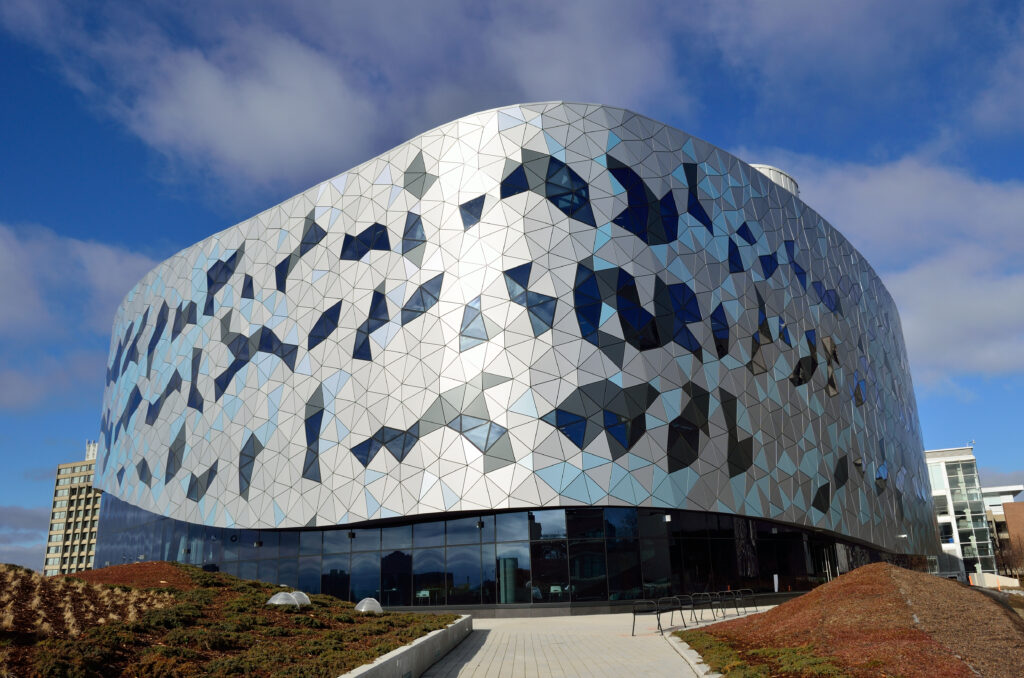
York University’s plans for a new School of Medicine in Vaughan received a boost this week with a $9 million investment from the Ontario government.
The school would be located on the campus of the Cortellucci Vaughan Hospital, within the city of Vaughan’s Healthcare Centre Precinct. Stephen Lecce, MPP for King-Vaughan, along with Mayor Steven Del Duca, have enthusiastically supported investments in the project.
“This new medical school will play a vital role in delivering more family doctors for communities like Vaughan,” says Mayor Del Duca.
The new School of Medicine would be the second major expansion of York University this year, joining the Markham Campus, which is set to open this spring.
“Early support from York’s strong network of community health providers, hospitals, and municipalities with whom we have been working has been instrumental throughout the School of Medicine planning phase,” says York University President Rhonda Lenton.
President Lenton says the University’s goal is to institute an innovative medical-training model at the School of Medicine that meets the evolving needs of a diverse population and promotes equitable access to high-quality medical care.
“This new investment to support increased physician education in Ontario comes at a critical time,” she says.
Ontario’s healthcare system accounts for 47% of its total budget, with annual costs rising by approximately 3%. Investments like these have the potential to bring down those costs through training doctors to deliver more effective and affordable care to its citizens.
They also simply provide more doctors, addressing the province’s 43% shortfall in primary healthcare physicians. A full 10% of Ontarians are without a family doctor, and millions of us rely on the ER or simply avoid care altogether, especially for mental health and addiction issues. The need for more and better care is urgent, as is a reimagining of the delivery of medical education.
In their proposals, York University states their goal as providing “the foremost community-based doctor education in Canada, preparing the next generation of frontline primary care doctors with the tools to thrive in a new, integrative, team-based health care environment.”
The University also outlines plans for a “bridging program”, helping to ensure that talented medical students can access education no matter their economic situation.
The medical community would certainly welcome a new supply of doctors equipped with modern training in digital health solutions, integrating A.I., population health determinants and community-based healthcare approaches. York University believes the School will represent a forward-thinking approach to medical education in the province.













